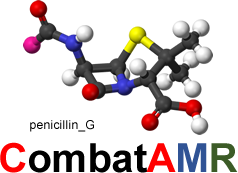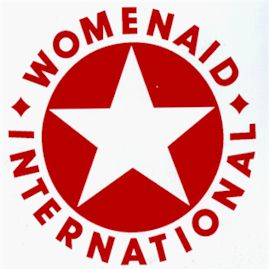Pida Ripley has enjoyed the privilege of working in partnership with many foreign government ministries and departments, UN and European agencies, international, national and local non-governmental organisations and alongside other civil society activists.
She has been a keynote and guest speaker at numerous national and international conferences on subjects ranging from national security and political issues to health, human rights, gender, people trafficking and environmental issues.
She has worked with government ministries and departments of: Albania, Armenia, Azerbaijan, Bosnia, Canada, Croatia, Georgia, Kirghizia, Russia, USA and the United Kingdom. Pida initiated, developed and implemented WomenAid International partnerships with all the following organisations.
UN World Food Programme (WFP)
WFP is the food aid arm of the United Nations system. Food aid is one of the many instruments that can help to promote food security, which is defined as access of all people at all times to the food needed for an active and healthy life. Targeted interventions are needed to help to improve the lives of the poorest people - people who, either permanently or during crisis periods, are unable to produce enough food or do not have the resources to otherwise obtain the food that they and their households require for active and healthy lives. Consistent with its mandate, which also reflects the principle of universality, its core policies and strategies are to provide food aid to:
- save lives in refugee and other emergency situations;
- improve the nutrition and quality of life of the most vulnerable people at critical times in their lives;
- help build assets and promote the self-reliance of poor people and communities, particularly through labour-intensive works programmes.
UN High Commission for Refugees (UNHCR)
The Office of the United Nations High Commissioner for Refugees was established on December 14, 1950 by the United Nations General Assembly. The agency is mandated to lead and coordinate international action to protect refugees and resolve refugee problems worldwide. Its primary purpose is to safeguard the rights and well-being of refugees. It strives to ensure that everyone can exercise the right to seek asylum and find safe refuge in another State, with the option to return home voluntarily, integrate locally or to resettle in a third country. It also has a mandate to help stateless people.
World Health Organisation (WHO)
WHO is the directing and coordinating authority for health within the United Nations system. It is responsible for providing leadership on global health matters, shaping the health research agenda, setting norms and standards, articulating evidence-based policy options, providing technical support to countries and monitoring and assessing health trends. In the 21st century, health is a shared responsibility, involving equitable access to essential care and collective defence against transnational threats.
UNICEF
UNICEF is the world's leading organisation for children, working in over 190 countries and is the driving force that helps build a world where the rights of every child are realized. It has the global authority to influence decision-makers, and the variety of partners at grassroots level to turn the most innovative ideas into reality. We do whatever it takes to make a lasting difference to children's lives. In everything we do, the most disadvantaged children are our priority. All our work is based on the UN Convention on the Rights of the Child, which sets out the rights of every child, no matter who they are or where they live, to grow up safe, happy and healthy.
UN Centre for Human Rights
The Office of the United Nations High Commissioner for Human Rights (OHCHR) represents the world's commitment to universal ideals of human dignity. OHCHR has a unique mandate from the international community to promote and protect all human rights. The High Commissioner heads OHCHR and spearheads the United Nations' human rights efforts to offer leadership, work objectively, educate and take action to empower individuals and assist States in upholding human rights.
UN Environment Programme (UNEP)
UNEP, established in 1972, is the voice for the environment within the United Nations system. UNEP acts as a catalyst, advocate, educator and facilitator to promote the wise use and sustainable development of the global environment. UNEP’s mandate is to be the leading global environmental authority that sets the global environmental agenda, that promotes the coherent implementation of the environmental dimensions of sustainable development within the United Nations system and that serves as an authoritative advocate for the global environment" Its work encompasses:
- Assessing global, regional and national environmental conditions and trends
- Developing international and national environmental instruments
- Strengthening institutions for the wise management of the environment
European Community Humanitarian Organisation (ECHO)
http://ec.europa.eu/echo/about
The European Union is the world's biggest donor of humanitarian aid, providing more than 50% of humanitarian aid worldwide. Its European Community Humanitarian Office (ECHO) was created in 1992 as an expression of the European solidarity with people in need all around the world. In 2004 it became the Directorate-General for Humanitarian Aid before integrating Civil Protection in 2010 for a better coordination and disaster response inside and outside Europe. WomenAid International was the 7th British charity invited to sign a Framework Partnership Agreement with ECHO.
UK Government Department for International Development (DFID) formerly ODA
https://www.gov.uk/government/organisations/department-for-international-development
The Department for International Development (DFID) is a ministerial department which leads the UK’s work to end extreme poverty. It aims to end the need for aid by creating jobs, unlocking the potential of girls and women and helping to save lives when humanitarian emergencies hit.
UK Ministry of Food & Farming (MAFF)
Ministry of Agriculture, Fisheries and Food (United Kingdom) - Wikipedia
The Ministry of Agriculture, Fisheries and Food was responsible for agriculture, fisheries and food. Until the Food Standards Agency was created, it was responsible for both food production and food safety. MAFF was formally dissolved on 27 March 2002, when the Ministry of Agriculture, Fisheries and Food (Dissolution) Order 2002 (S.I. 2002/794) came into force.
United States Air Force (USAF)
During the Yugoslavia war the USAF operated the central Bosnia airdrop from its Ramstein air base in Germany and the Sarajevo airlift out of Ancona, Italy. WomenAid International, with major funding from DFID, acted as a logistical partner in the provision and transportation of more than 3000 tonnes of food aid to both Ramstein and Ancona.
International Non-Governmental Organisations (INGOs) partnerships include:
International Organisation for Migration (IOM)
http://www.iom.int/cms/about-iom
Established in 1951, IOM is the leading inter-governmental organization in the field of migration and works closely with governmental, intergovernmental and non-governmental partners. Dedicated to promoting humane and orderly migration for the benefit of all, it provides services and advice to governments and migrants. IOM works to help ensure the orderly and humane management of migration, to promote international cooperation on migration issues, to assist in the search for practical solutions to migration problems and to provide humanitarian assistance to migrants in need, including refugees and internally displaced people.
International Federation of the Red Cross (IFRC)
The International Federation of Red Cross and Red Crescent Societies (IFRC) is the world's largest humanitarian organization, providing assistance without discrimination as to nationality, race, religious beliefs, class or political opinions. Founded in 1919, the IFRC comprises 187 member Red Cross and Red Crescent National Societies, a secretariat in Geneva and more than 60 delegations strategically located to support activities around the world. The Red Crescent is used in place of the Red Cross in many Islamic countries.
Catholic Relief Society (CRS)
Catholic Relief Services was founded in 1943 by the Catholic Bishops of the United States to serve World War II survivors in Europe. It has expanded to reach more than 100 million people in 91 countries on five continents. Its mission is to assist impoverished and disadvantaged people overseas, working in the spirit of Catholic social teaching to promote the sacredness of human life and the dignity of the human person. Although its mission is rooted in the Catholic faith, its operations serve people based solely on need, regardless of their race, religion or ethnicity.
White Ribbon Campaign
http://www.whiteribbon.ca/who-we-are
White Ribbon is the world’s largest movement of men and boys working to end violence against women and girls, promote gender equity, healthy relationships and a new vision of masculinity. Men are asked to wear white ribbons as a pledge to never commit, condone or remain silent about violence against women and girls. Since its launch in 1991 the White Ribbon has spread to over 60 countries around the world. Its vision is for a masculinity that embodies the best qualities of being human. Pida established the White Ribbon Campaign throughout the Caucasus region as part of her human rights advocacy work and enrolled the support of many famous sportsmen, actors, artists and other male celebrities as White Ribbon Ambassadors.
And …. over 750 Non-Governmental Organisations involved in the various human rights and environmental regional network platforms she initiated.


